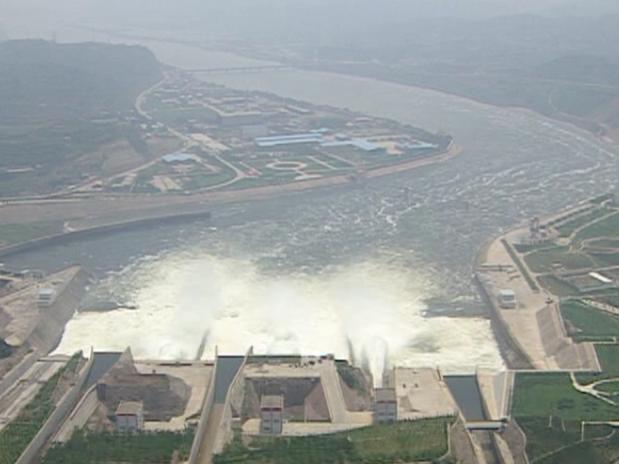The proposed cadres of shanxi provincial party committee are now publicized. Liu Zhihong, currently the deputy secretary and mayor of Shuozhou Municipal Party Committee, intends to be the secretary of the municipal Party committee. Born in january 1960, he was born in jinzhong, shanxi province and graduated from the central party school. He joined the communist party of china in july 1978 and joined the work in december 1976. He once served as the county magistrate and secretary of the county party committee of xiyang county, the standing committee of jinzhong municipal party committee and the minister of propaganda department, the standing committee and vice mayor of jinzhong municipal party committee, and the deputy secretary of jinzhong municipal party committee. In august 2016, he served as the deputy secretary and acting mayor of shuozhou municipal party committee, and in february 2017. Zhu peng, currently deputy secretary of yuncheng municipal party committee (director of the main hall), plans to be named as the candidate for mayor. Born in march, 1968, he was born in xuxi, hubei province with a postgraduate degree. He joined the communist party of china in may, 1988and joined the work in august, 1989. He was the general manager of china software and technology service co., ltd., the deputy director of the provincial economic and information commission (the director of the department), the director of the provincial national defense science and technology office, and the secretary of the provincial national defense science and technology industry party committee. He was appointed as the current post in july 2016. Zhou Fuguo, currently deputy secretary of the Party committee of Luliang College, intends to be secretary of the Party committee of Luliang College. Born in february, 1963, he was born in pinglu, shanxi province with a university degree. He joined the communist party of china in december, 1984 and joined the work in july, 1986. He once served as the director of personnel department of Shanxi University and secretary of discipline inspection committee of Shanxi Agricultural University. He took the present position in December 2015. Xiong jijun, a member of the people’s republic of china, is currently the vice president of north university of china and intends to be the dean of luliang college. Born in August, 1971, he was a native of Xiushui, Hubei province. He has an on-the-job postgraduate degree and joined the work in July, 1993. He was the director of the Department of Electronic Science and Technology of North University of China and the dean of the School of Electronic and Computer Science and Technology. He took the present position in June, 2013. Li Wenhui, currently the provincial commission for discipline inspection in the General Office of the provincial government discipline-team leader, intends to be the inspector of the department. Born in april, 1958, he was born in anyang, henan province with a university degree. He joined the communist party of china in december, 1983 and joined the work in october, 1976. He once served as the minister of the communist youth league party committee, the minister of the ministry of youth engineering, the director of the foreign economic and foreign affairs department of the provincial department of agriculture, the provincial commission for discipline inspection in the provincial department of agriculture discipline-team leader, the provincial department of human resources and social security discipline-team leader, and the provincial department of housing and construction discipline-team leader. He took the present position in november 2015. Guo Zhengyu, currently a member of the party group of the provincial religious affairs bureau (Provincial Ethnic Affairs Commission) and the former discipline-team leader, intends to be the inspector of the department. Born in march, 1958, from pingxiang, hebei province, with an on-the-job postgraduate degree, he joined the communist party of china in february, 1987 and joined the work in february, 1982. He once served as the director of the personnel department and the director of the office of the provincial tourism bureau, and the provincial tourism bureau assistant counsel. In june, 2014, he served as discipline-team leader of the provincial religious affairs bureau (provincial civil affairs commission) and a member of the party group. Wang yun is currently the deputy director of the provincial education department and intends to be the inspector. Born in october 1957, yicheng, shanxi province, with a university degree, joined the communist party of china in october 1976 and joined the work in january 1974. He once served as the deputy director and director of the provincial entrance examination management center, and took the present position in june, 2014. Li Taiping, currently the deputy director of provincial Department of Civil Affairs, intends to be the inspector. Born in March, 1958, Yangcheng, Shanxi province, with a university degree from the Central Party School. He joined the Communist Party of China in July, 1986 and joined the work in June, 1975. He once served as the director of the personnel training department of the political department of the provincial public security department, the deputy inspector of the provincial public security department, the director of the political department, and the deputy director of the department. He served as the current post in january 2013. Wang xiaoli, non-party, is currently the deputy director of the provincial land department, and is proposed to be the inspector. Born in june, 1962, from beijing city, with a university degree, he joined the work in august, 1984. He once served as the director of policies and regulations of the provincial department of geology and mineral resources, the director and chief engineer of the department of mineral development and management of the provincial department of land and resources, and served as the current post in january 2005. Hao Yaoping is currently the deputy director of the provincial housing and construction department and intends to be the inspector. He was born in August, 1958. he was born in Jixian county, Shanxi province and graduated from the Central Party School. He joined the Communist Party of China in February, 1985 and joined the work in March, 1976. He once served as the county magistrate of taigu county, secretary of heshun county party committee, secretary of taigu county party committee, and provincial discipline inspection commission in the provincial construction department discipline-team leader. He took the present position in january, 2014. Chen Mingchang is currently the deputy director of the provincial Department of Agriculture and the deputy director of the provincial Party committee’s agricultural industry office. He is proposed to be an inspector. Born in november 1959, wanrong, shanxi province, with a university degree, joined the communist party of china in november 1995 and joined the work in august 1982. He once served as the director and vice president of the soil fertilizer institute of the provincial academy of agricultural sciences, and took the present position in june 2013. Li yuezhen, female, is currently the full-time vice president (deputy director level) of provincial family planning association, and intends to be the inspector. Born in april, 1958, lingqiu, shanxi province, graduated from the central party school. He joined the communist party of china in january, 1980 and joined the work in december, 1976. He was the director of the policy and regulation department of the provincial family planning commission, the director of the science and technology department, and the provincial family planning commission assistant counsel. In july 2010, he served as his current post. Niu jianming is currently the deputy director of the provincial coal department and intends to be the inspector. Born in october, 1957, he is a native of jixian county, shanxi province. He has an on-the-job university degree. He joined the communist party of china in november, 1976 and joined the work in september, 1980. He once served as the director and deputy director of planning and development department of the provincial coal bureau, and served as the current post in may, 2009. Jing Hongshe, currently the deputy director of the provincial bureau of statistics, intends to be an inspector. Born in may, 1959, yongji, shanxi province, with a university degree, joined the communist party of china in march, 1985, and joined the work in august, 1982. He once served as the director of the forestry, animal husbandry and fishery department of the provincial agricultural adjustment team, the full-time deputy secretary of the party committee of the provincial bureau of statistics, the director of the fixed assets investment department, and the chief statistician of the provincial bureau of statistics. He served as the current post in march, 2014. In zheng-hui liu, he is currently the deputy director of the provincial bureau of cultural relics and intends to be the inspector. Born in january 1960, xinxian county of henan people with a university degree, joined the communist party of china in june 1992 and joined the work in august 1982. He was the director of the Office of the General Office of the provincial government and served as the current post in September 2004. Wang Degui, currently the vice chairman of the Provincial Association for Science and Technology, intends to be the inspector. Born in June, 1958, Zuoyun, Shanxi province, with a college degree, joined the Communist Party of China in December, 1992 and joined the work in March, 1975. He was the minister of the International Department and the Minister of the popularization department of the Provincial Association for Science and Technology, and was appointed as the current post in April 2005. Cao Huibin, a non-partisan, former vice mayor of Datong city, is proposed to be the inspector of the provincial CPPCC Economic Commission. Born in October, 1957, from Dingzhou, Hebei province, with a university degree, joined the work in July, 1976. He once served as deputy chief engineer, President of Design and Research Institute, director of technology center, vice mayor of Changzhi city, and vice mayor of Datong city in March 2012. Ren Yangang, member of Minjin, former deputy mayor of Yangquan city, proposed to be Inspector of Minjin provincial Party committee. Born in October, 1958, Jining, Shandong province, with a university degree, joined the work in January, 1975. He was the chief of correspondence division of yangquan institute of education, the main committee of minjin yangquan city, the vice chairman of yangquan municipal political consultative conference, and the deputy mayor of yangquan city in may 2012. In Yun-Feng Li, he is currently the member of the Standing Committee of Yangquan municipal Party committee and the secretary of the county Party committee of Jixian county, and is proposed to be the deputy secretary of the municipal Party committee. Born in July, 1969, Hongdong, Shanxi province, graduated from the Central Party School. He joined the Communist Party of China in November, 1992 and joined the work in July, 1994. He was the Minister of Youth Department, the minister of rights and interests department, the director of the provincial Youth Work Committee, the Standing Committee of Yangquan municipal committee and the Minister of United Front Work Department. He served as the current post in July, 2016. Liang Kechang, currently standing committee member and secretary general of Changzhi municipal Party committee, intends to serve as deputy secretary of municipal Party committee. Born in april, 1965, pingyao, shanxi province, graduated from the party school of the provincial party committee. He joined the communist party of china in april, 1986 and joined the work in july, 1986. He once served as the director of the Comprehensive Department of the provincial bureau of letters and visits, the director of the inspection office, and the vice chairman of the provincial federation of trade unions. He served as the current post in December 2015. Zhao xinnian is currently the secretary of zezhou county party committee and intends to be the standing committee of the municipal party committee. Born in January 1976, he was born in Tongguan, Shaanxi province with a university degree. He joined the Communist Party of China in April 1996 and joined the work in July 1998. He once served as deputy director of the office
Read More








